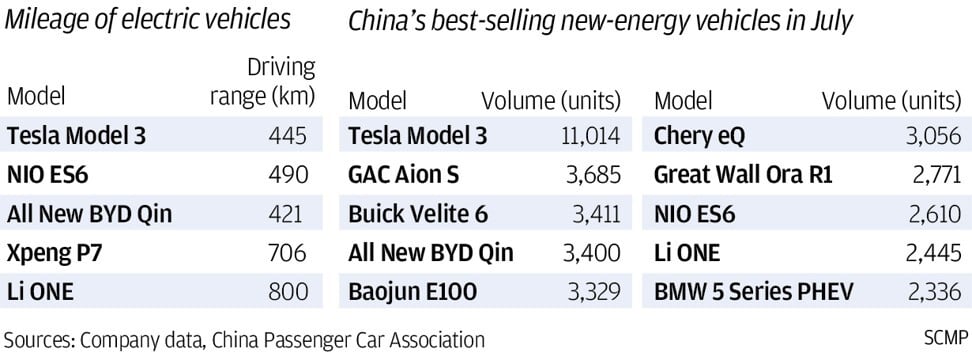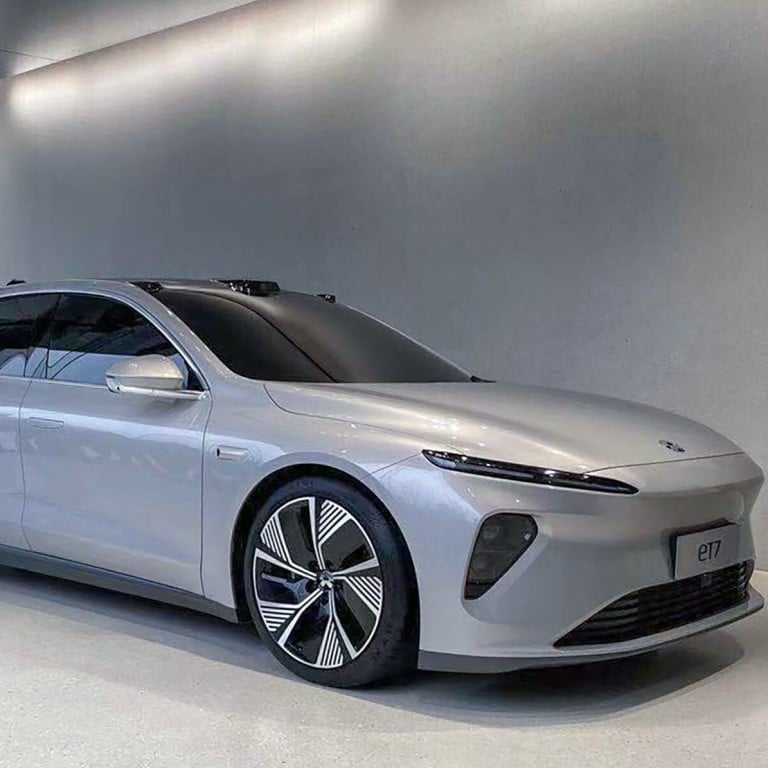
China’s EV war: Tesla faces a rival with a record 621-mile range as NIO’s ET7 electric car raises the ante in world’s largest market
- The Standard Edition of NIO’s ET7 electric car, with a price tag of 448,000 yuan (US$69,184) before subsidy, has a range of 500 kilometres using a 70 kilowatt-hour (kWh) battery pack
- The Premier Edition can go as far as 700km on a 100 kWh battery while the Extended Edition has a stated range of 1,000km using a 150 kWh battery
NIO has launched a mass production electric car with what could be the world’s farthest driving range, as it ups the ante with Tesla for customers in the largest market for new-energy vehicles on the planet.
The Standard Edition of NIO’s ET7 electric car, with a price tag of 448,000 yuan (US$69,184) before subsidy, has a driving range of 500 kilometres using a 70 kilowatt-hour (kWh) battery pack, or about 7 per cent farther than Tesla’s Shanghai-made Model 3, which sells for 249,000 yuan after subsidy.
The Premier Edition of the ET7 can go as far as 700km on a 100 kWh battery for a 536,000 yuan price tag while the Extended Edition has a stated range of 1,000km on a single charge, using a 150 kWh battery, the carmaker said. The price of the Extended Edition is not immediately available.
“We will continuously invest in products and technologies, and speed up the development of our service network, thereby bringing a better experience of smart electric vehicles to users,” NIO founder and chief executive William Li Bin said during a launch ceremony at the Sichuan provincial capital of Chengdu on Saturday night.
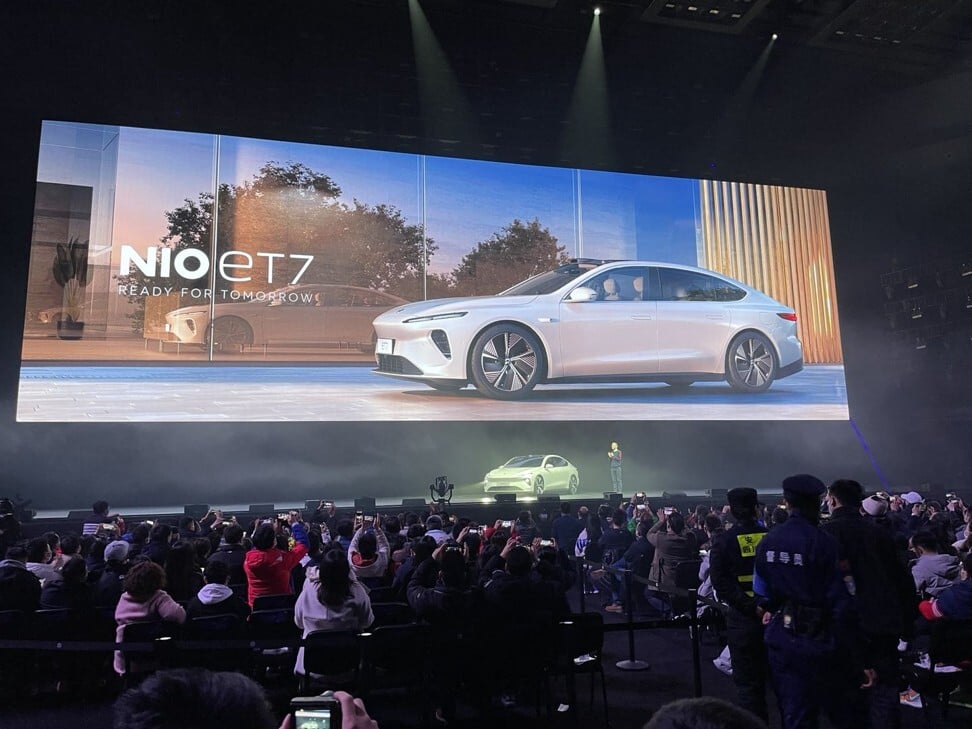
The ET7 is NIO’s first sedan, following its ES8 and ES6 sports-utility vehicles. The carmaker’s shares rose nearly 10 per cent to US$58.92 overnight in New York, giving it US$92 billion in market value, more than the century-old Ford Motor. The 47-year old Li, son of a coal mine worker, is worth US$9.1 billion, according to Bloomberg’s billionaire ranking.
The launch of ET7, hosted at a sports arena amid tight coronavirus screening and social-distancing rules, was attended by 10,000 people. Chengdu, with a population of 16 million people, had 158 confirmed Covid-19 cases as of January 10, with three fatalities. Still, attendees to the launch had to submit a negative test result, undergo a temperature check before entering the arena, and don facial masks throughout the two-hour event.
Entertainment for the evening was provided by the Chinese rock star Wang Feng, married to the renowned actress Zhang Ziyi, with a rousing rendition of Brave Heart, his 2007 ode to the Mel Gibson movie of the same name.
“I hope every one of us can march forward resolutely in pursuit of our brighter future,” said Li as he concluded the two-hour event.
“NIO is sending a strong message that it will stand firm in making better and smarter cars than its rivals including Tesla,” said Peter Chen, an engineer with car component maker TRW. “Judging from the ET7’s design and price tag, NIO is hoping to keep its edge over other leading EV makers with its technology and driving range.”
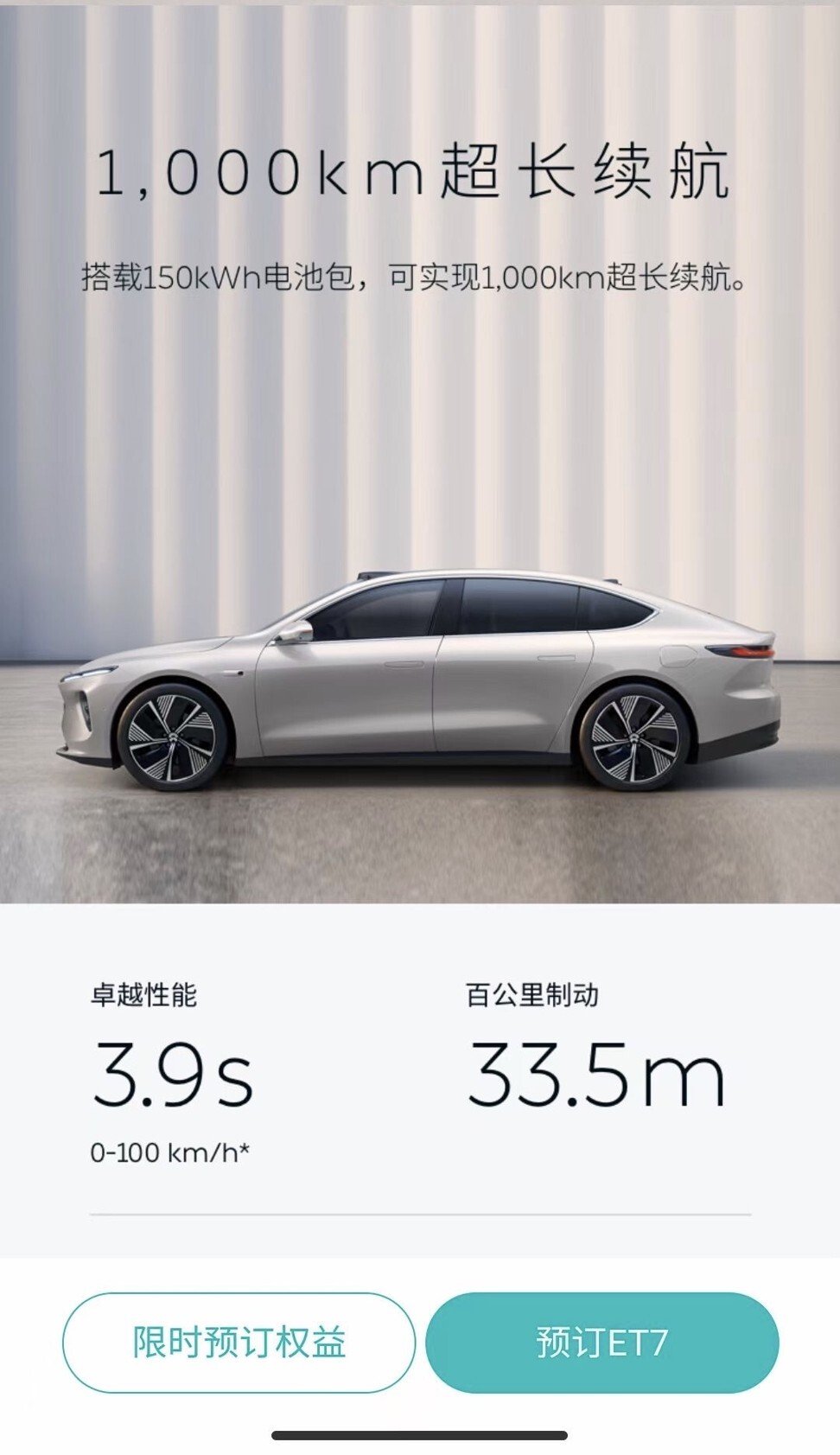
At that price range, NIO is aiming to displace BMW’s X3 and Audi’s Q5 sports utility vehicles – both petroleum guzzlers – in the coming years, said Li.
“We are targeting at the established marques powered by internal combustion engine,,” he said during a Sunday media briefing after the launch. “We do not view Tesla as our main rival.”
The ET7 is equipped with NIO’s autonomous driving system (NAD). It claims to be the first electric car model in the world to feature an 8-megapixel self-driving HD camera, giving the vehicle a significant increase in image data collection capability compared to the 1.2-megapixel of its competitors.
The computer system on board has seven times the computing power of Tesla’s FSD, Li said. The 4D dynamic body control system with high precision maps and sensors can actively adjust the vehicle’s suspension by sensing road surface bumps in advance, Li said in his presentation.
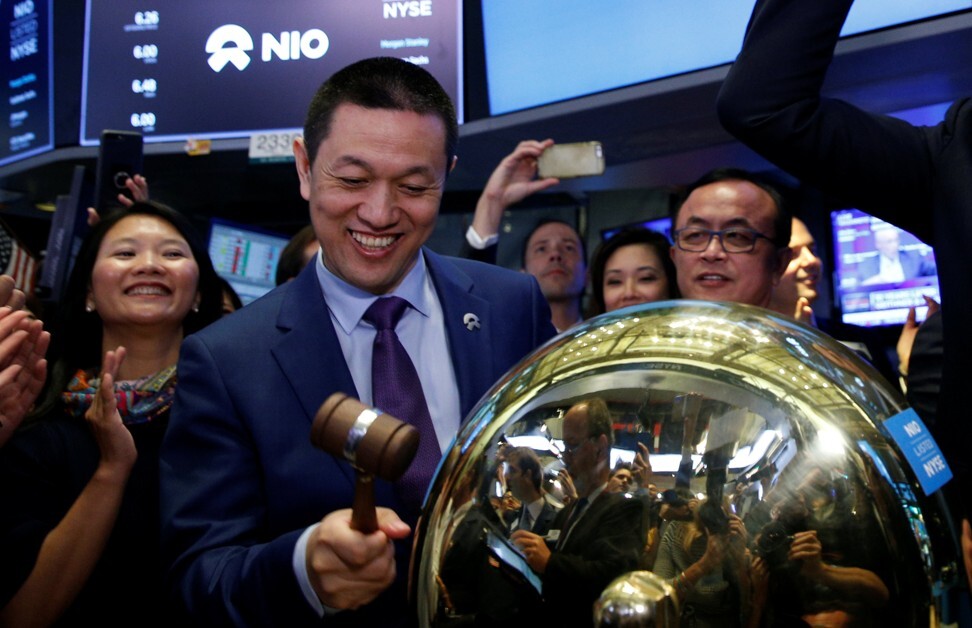
“Because we have so many advanced technologies to offer (in the ET7), we will start delivering them in the first quarter of 2022 (with more time needed to prepare for mass production,” Li said.
NIO, Xpeng and Li Auto – the three Chinese electric car start-ups listed in New York, are facing an uphill struggle as they take the battle to Tesla in their home market. Tesla unexpectedly launched Model Y, its second Shanghai-made electric vehicle, on New Year’s Day with a 30 per cent price cut, a move aimed at stamping its authority in the premium EV segment.


